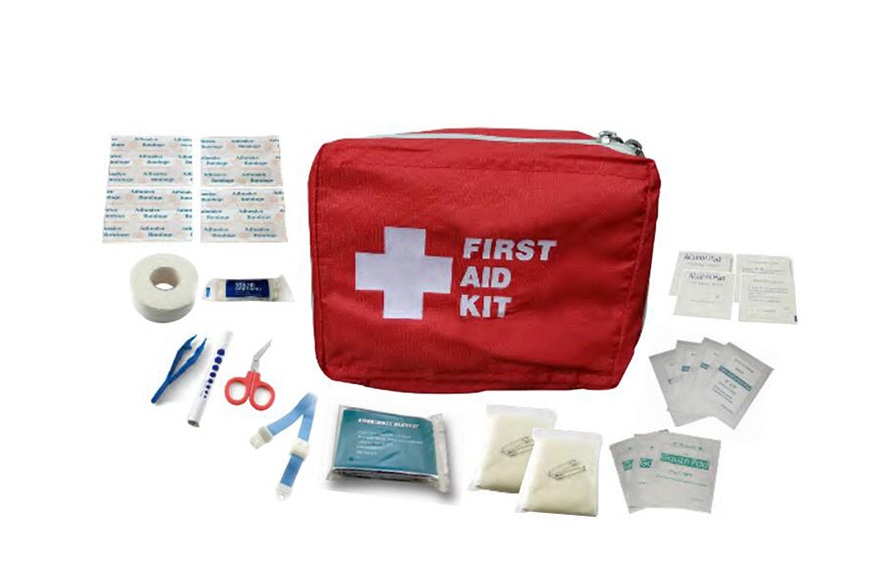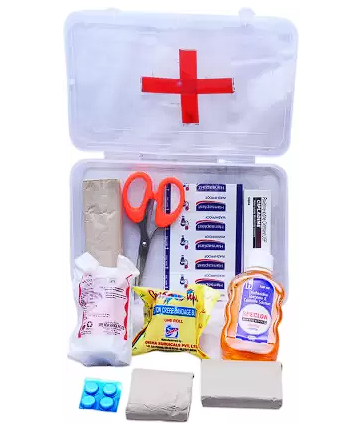What is a medical dressing? Medical dressings, a crucial component in healthcare, serve as protective covers for wounds, promoting healing and preventing further harm. They come in various forms, including gauze, films, foams, and hydrogels, each designed to cater to specific wound types. The importance of these dressings cannot be overstated. They not only accelerate the healing process but also minimize the risk of infection. By maintaining a moist environment, they enhance cell growth and tissue formation.

Types of Medical Dressings
In the medical field, dressings play a pivotal part in injuring executives, advancing mending, and forestalling diseases. There are three fundamental types of dressings: primary, secondary, and tertiary.
A. Primary Dressings
Primary Dressings, applied straightforwardly to wounds, effectively ingest exudate, keep a damp climate, and forestall bacterial defilement. They come in direct contact with the injury, making their structure basic for recuperating.
For example, bandage dressings, produced using woven or non-woven materials, are exceptionally flexible. They can oversee minor consumption, little cuts, and scraped areas. Then again, non-follower dressings are great for wounds with light to direct exudate. They don’t adhere to the injury, limiting agony during dressing changes.
B. Secondary Dressings
Secondary Dressings, utilized on top of essential dressings, give extra insurance, assimilation, and pressure. They secure the essential dressing set up and additionally, aid wound recuperation.
Glue swathes, a typical sort of optional dressing, safeguard minor injuries and hold the essential dressing set up. Pressure swathes, another model, apply strain to forestall expansion and further development blood the stream, particularly in instances of injuries and strains.
C. Tertiary Dressings
Tertiary dressings, otherwise called swathe retainers, secure essential and optional dressings. They offer extra help and pressure without sticking to the injury.
Instances of tertiary dressings incorporate wraps and supports. Wraps, frequently flexible or made of mesh, hold dressings on difficult-to-swathe regions like the head or appendages. Braces, in the meantime, immobilize a harmed region, lessening torment and forestalling further harm.
Functions of Medical Dressings
Medical dressing, a foundation in injury the board, serves different capabilities. From safeguarding wounds to helping with recuperating, overseeing torment, controlling exudate, and giving pressure, each capability is critical in the injury-mending process.
A. Wound Protection
The essential capability of medical dressing is wound assurance. They go about as a boundary against pollution, keeping soil and unfamiliar particles from entering the injury. Besides, they act as a safeguard against microorganisms, decreasing the gamble of disease. This defensive layer is fundamental in keeping a spotless climate and helpful for mending.
B. Wound Healing Aid
Medical dressing additionally helps in injury mending. They advance a soggy injury climate, which is useful for cell development and movement. This dampness balance works with two basic cycles in injury recuperating: granulation and epithelialization. Granulation includes the development of new connective tissue and little veins, while epithelialization is the renewal of the skin over the injury.
C. Pain Management
Torment the board is one more crucial capability of medical dressing. They limit torment during dressing changes by not sticking to the injury bed. A few dressings even contain pain relieving specialists that give solace and help to the patient.
D. Absorption and Exudate Management
Medical dressing plays a critical part in retention and exudate the executives. They control wound exudate, retaining an overabundance of liquid while keeping up with the essential dampness for recuperating. Thus, they forestall maceration, a condition where the skin turns out to be excessively delicate and separates because of delayed openness to dampness.
E. Compression and Support
Finally, particular sorts of dressings give pressure and backing. They upgrade dissemination in the impacted region, advancing quicker mending. Moreover, they assist with lessening expansion and oedema, giving help and accelerating recuperation.

Selection Considerations for a Medical Dressing
Picking the right medical dressing is a basic part of wound care. A few variables become an integral factor when choosing the most reasonable dressing. These contemplations guarantee ideal recuperating and patient solace.
A. Wound Type and Severity
The sort and seriousness of the injury altogether impact the decision to dress. Intense injuries, like careful entry points or minor cuts, normally require an unexpected dressing in comparison to ongoing injuries like strain ulcers or diabetic foot ulcers. The injury’s profundity, size, and area likewise matter. For example, a profound injury might require an alginate or froth dressing, while a shallow injury could profit from a hydrocolloid or film dressing.
B. Exudate Level
Exudate level, or how much-twisted seepage, is another critical element. Exceptionally oozing injuries need dressings with fantastic absorptive properties, similar to froths or alginates. Then again, dry injuries might profit from hydrogels or hydrocolloids that keep a sodden injury climate.
C. Patient Comfort and Preference
Patient solace and inclination ought to never be neglected. An open-to-dressing can improve patient consistency with the treatment plan. A few patients might favour straightforward dressings that permit them to screen the injury without eliminating the dressing. Others could pick dressings that are not difficult to change or those that cause insignificant agony during expulsion.
D. Allergies and Sensitivities
Sensitivities and responsive qualities are additionally essential to consider. A few patients might be hypersensitive to specific dressing materials like plastic or glue parts. In such cases, hypoallergenic or non-cement choices would be more suitable.
E. Healthcare Provider’s Recommendation
The medical services supplier’s proposal conveys huge weight. They can evaluate the injury and the patient’s general well-being status, settling on an educated conclusion about the best dressing. Their mastery and experience are priceless in guaranteeing powerful injury to the executives.
Last Words
Medical dressings are a fundamental device in medical care, giving an ideal mending climate to wounds. Their part in forestalling contamination, advancing mending, and diminishing patient uneasiness highlights their importance. As medical services keep on advancing, so does the advancement of medical dressings, with new materials and innovations arising to work on injury care.
 Professional medical equipment supplier
Professional medical equipment supplier
